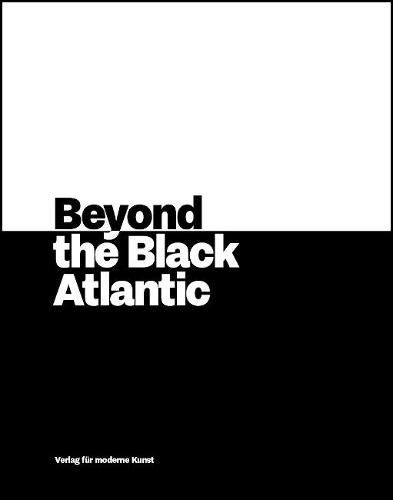Readings Newsletter
Become a Readings Member to make your shopping experience even easier.
Sign in or sign up for free!
You’re not far away from qualifying for FREE standard shipping within Australia
You’ve qualified for FREE standard shipping within Australia
The cart is loading…






Contemporary artists respond to Paul Gilroy’s concept of the Black Atlantic
A groundswell of complex events around the globe have made discussion surrounding the Western, Eurocentric, often prejudiced notion of Blackness even more relevant and controversial in recent years. Social conflicts in Western societies have brought the idea of a global, polyphonic Black culture–the Black Atlantic –to the fore. The term was coined in 1993 by British sociologist Paul Gilroy, in his book The Black Atlantic: Modernity and Double-Consciousness, now considered a definitive text on the culture and politics of the African diaspora in the Western world.
Through the work of four artists–Sandra Mujinga, Paulo Nazareth, Tschabalala Self and Kemang Wa Lehulere–this publication addresses the complexity of identity, ambivalence around questions of visibility and transparency, and the repression of history in education.
$9.00 standard shipping within Australia
FREE standard shipping within Australia for orders over $100.00
Express & International shipping calculated at checkout
Contemporary artists respond to Paul Gilroy’s concept of the Black Atlantic
A groundswell of complex events around the globe have made discussion surrounding the Western, Eurocentric, often prejudiced notion of Blackness even more relevant and controversial in recent years. Social conflicts in Western societies have brought the idea of a global, polyphonic Black culture–the Black Atlantic –to the fore. The term was coined in 1993 by British sociologist Paul Gilroy, in his book The Black Atlantic: Modernity and Double-Consciousness, now considered a definitive text on the culture and politics of the African diaspora in the Western world.
Through the work of four artists–Sandra Mujinga, Paulo Nazareth, Tschabalala Self and Kemang Wa Lehulere–this publication addresses the complexity of identity, ambivalence around questions of visibility and transparency, and the repression of history in education.